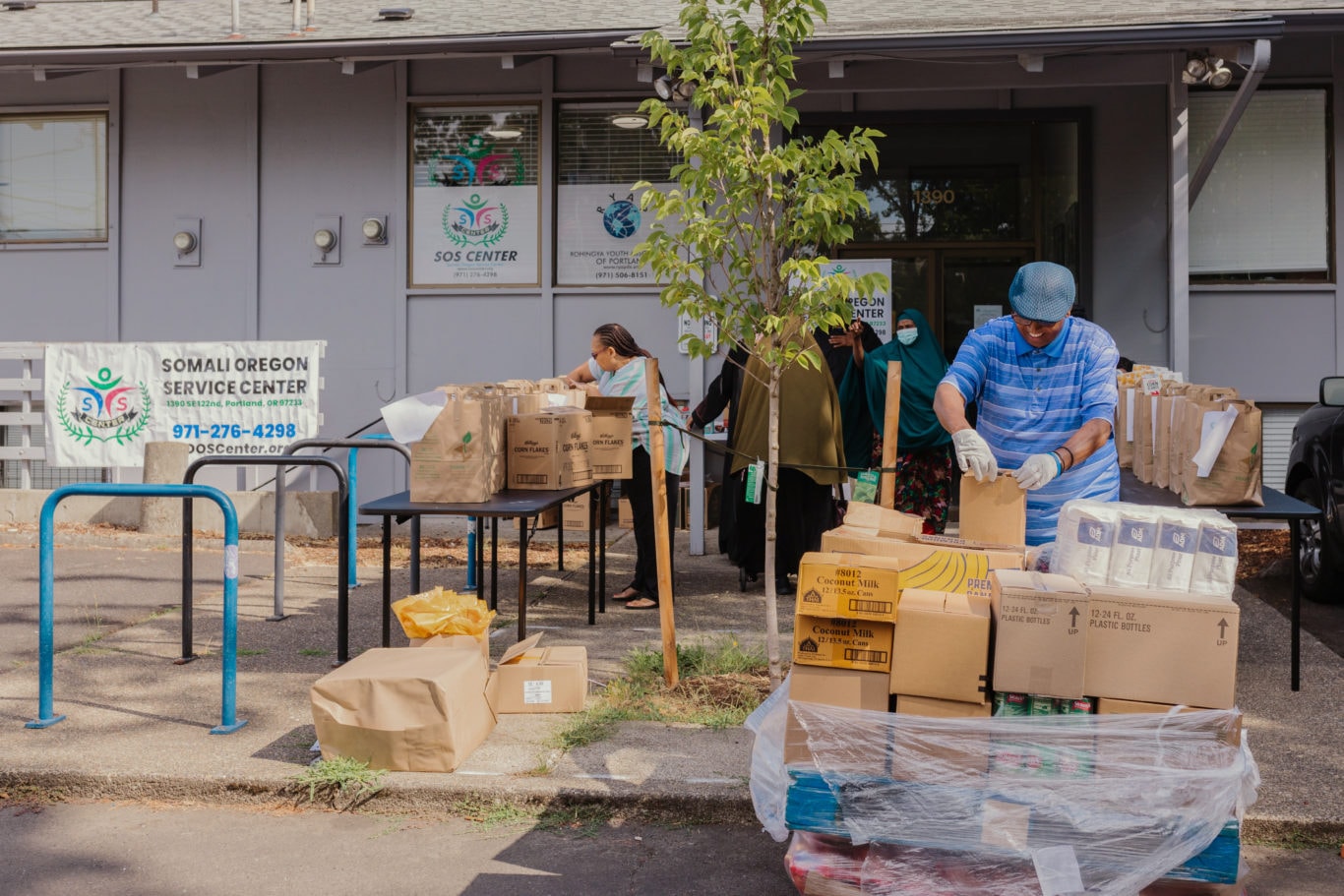People struggling to find full-time work and immigrants are targeted — but SNAP cuts will impact everyone.
People struggling to find full-time work and immigrants are targeted — but SNAP cuts will impact everyone.
Many legally present immigrants will soon be barred from food aid
Under H.R. 1 (also known as the “One Big Beautiful Bill”), most lawfully-present, non-citizen immigrants will be barred from SNAP (formerly known as food stamps), with exceptions for certain Lawful Permanent Residents (LPRs), certain Cuban/Haitian entrants and Compact of Free Association (COFA) citizens from the Marshall Islands, Micronesia and Palau. All other immigrants, including refugees, humanitarian parolees and asylees, will lose SNAP eligibility. Note: SNAP is not and has never been available to undocumented non-citizens.
In Oregon, thousands of legally present immigrants* will lose critical food aid, all while facing attacks to their safety and humanity from the current federal administration. This exclusion of immigrants will take away an estimated $6.5 million in food assistance to Oregonians every year.
When will this take effect? It is unclear exactly when these humanitarian immigrants will lose access to SNAP. States can expect to know more after the USDA issues guidance.
Guidance to SNAP participants who may be impacted: Contact ODHS or your case worker to learn whether these changes apply to you.
Ineffective work requirements have expanded
Many SNAP participants can only access SNAP for a maximum of three months during a three-year period, unless they meet strict “work requirements” (aka the “time limit”). H.R. 1 increases the number of participants subject to the time limit, despite evidence that these work requirements do NOT increase employment.
These rules are so rigorous that many people who do meet the work requirements still lose their benefits due to the extensive paperwork. More families will lose their SNAP benefits simply because of clerical errors or variable work hours from employers.
Harmful time limits will now apply to thousands more Oregonians who struggle to find full-time work, and will be especially harmful for those who live in areas with limited job markets. The state option to waive the time limit in areas of high unemployment has also been severely restricted, meaning rural Oregonians will especially be at risk of losing food assistance. Specifically, H.R. 1 imposes the time limit on:
Adults up to age 65;
Parents, grandparents or other caregivers of children age 14 or older;
Adults experiencing houselessness (including unhoused families if children are 14 or older);
Veterans who don’t meet other exemptions;
Former foster youth under age 24; and
People who fall into any of the categories above and live in areas that are no longer exempt from time limits.
This time limit expansion will take away an estimated $198.5 million in food assistance from Oregonians every year.
When will this take effect? New time limits will start in some Oregon counties as early as September 1, 2025.
Guidance to SNAP participants who may be impacted: Contact ODHS or your case worker to learn whether these changes apply to you.
SNAP cuts for everyone
Everyone on SNAP will be affected by H.R. 1. SNAP will become increasingly out of step with modern life for low-income families. Currently, SNAP benefits should reflect the cost of a nourishing, practical, cost-effective diet. H.R. 1 stripped away regulations and evaluations of SNAP that help us understand the real cost of groceries.
Under H.R. 1, SNAP benefit amounts will be frozen for many years. And although SNAP is the most effective nutrition program in the country, it is already insufficient for Oregonians receiving an average benefit of $5.77 per day — about the price of a cup of coffee.
This means that every SNAP participant in the country will see a gradual 21% decrease in the purchasing power of their SNAP benefits. This will amount to a $35 billion cut in SNAP benefits over the next 7 years.
This not only harms participants, but also local grocery stores and farmers markets who rely on these dollars. In Oregon, the 3,484 SNAP-authorized retailers redeemed nearly $2 billion in 2023.
Note: This new law not only impacts SNAP, but also other programs with benefit amounts that rely on the Thrifty Food Plan, such as TEFAP, Summer EBT and the NAP Block Grant to Puerto Rico.
When will this take effect? October 1, 2025.
Guidance to SNAP participants who may be impacted: Watch for information coming soon from ODHS about new benefit amounts.
Learn More & Take Action
Read: What does the largest SNAP cut in history mean for Oregonians?
Our laws should end hunger — not cause it. Sign up for action alerts to learn more about how we can end hunger together.
Read: What do SNAP cuts mean in the long term for Oregonians?
*Note: Differentiating ”legally present immigrants” is important insofar as the law, but food is a human right — all people deserve access to food regardless of where we are from.
